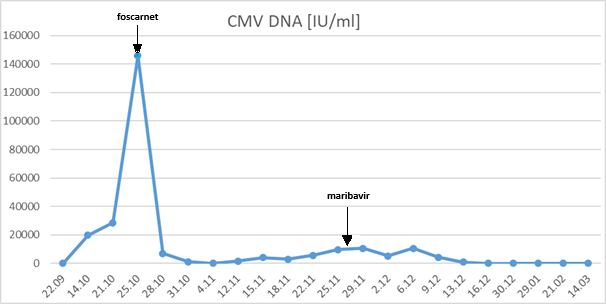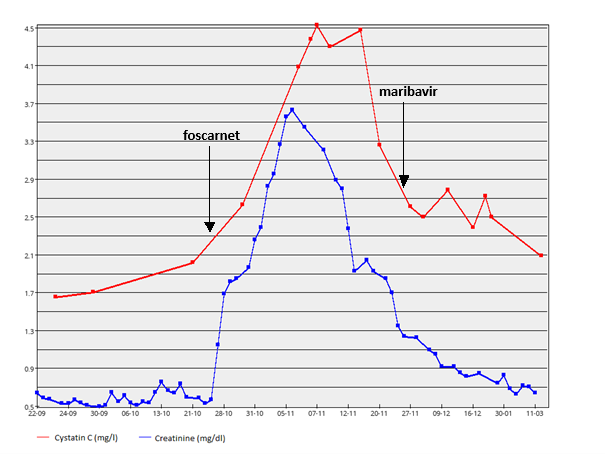Maribavir for refractory cytomegalovirus infection in a child after combined liver and kidney transplantation
Małgorzata Panek1, Joanna Teisserye1, Julita Latka-Grot1, Adam Kowalski1, Piotr Kaliciński1, Maria Janowska1, Marek Szymczak1.
1Department of Pediatric Surgery & Organ Transplantation , The Children’s Memorial Health Institute, Warsaw, Poland
Introduction: We present a case study of 10-year-old girl with Joubert syndrome, who developed refractory CMV infection after combined liver and kidney transplantation (CLKT). The viral infection was treated previously unsuccesfully with gancyclovir, which was used as standard medication. After introducing a foscarnet treatment a rapid decrease in renal function was observed, what forced drug cessation. Cidofovir was given twice with no clinical effect. New antiviral agent – Maribavir – was used off-label , after ethical committee approval, as four line option.
Methods: We analyzed laboratory test results, such as CMV DNA level in serum, creatinine and cystatin C. Maribavir treatment was given for 8 weeks according to guidelines for adult patients.
Results: Maribavir was succesfully introduced 2 months after CLKT. Viral load decrease and improvement of renal function was observed.


During 2-month-long follow-up time no CMV reactivation was detected.
Conclusion: Maribavir can be safely used as therapeutical option for CMV infection in children after solid organ transplantation. In contrast to standard antiviral drugs its adverse effect spectrum does not include kidney damage, which allows safe use in patients with decreased renal function.
[1] cmv infection
[2] refractory cmv
[3] clkt
[4] pediatric transplantation
[5] liver-kidney transplant
[6] maribavir